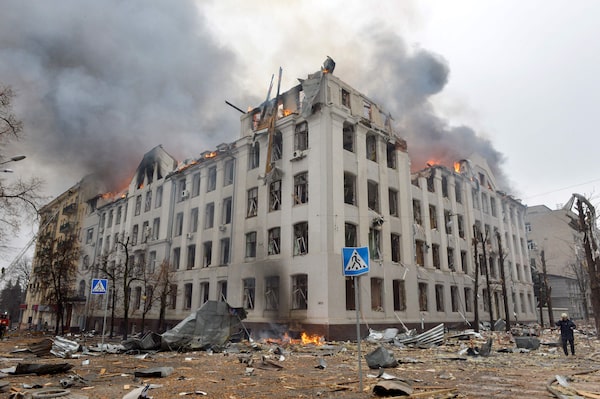
Firefighters work to contain a fire at the Economy Department building of Karazin Kharkiv National University, reportedly hit during shelling by Russia on March 2.SERGEY BOBOK/AFP/Getty Images
Russian forces have occupied the centre of Kherson, a strategically important city of 300,000 in southern Ukraine, in a key advance that positions them to move along the economically critical Black Sea coast.
It is the first large city in Ukraine to fall under Russian control, as troops continued to fire rockets, missiles and artillery into other important urban centres on the seventh day of war.
Heavy shelling destroyed buildings and raised death tolls in the Sea of Azov port city of Mariupol and in the eastern city of Kharkiv, where Russian paratroopers landed Wednesday and explosions shattered parts of the city’s police headquarters and a nearby university building. Local officials reported a missile strike on the city hall as well. Russia’s targeting of densely populated areas is reminiscent of the ruthless campaigns it has waged in Syria and Chechnya.
In a video message, Kharkiv Mayor Ihor Terekhov expressed disbelief at the destruction of a Russian-speaking city, where a quarter of the 1.4 million residents have relatives in Russia. “We never expected this could happen: total destruction, annihilation, genocide against the Ukrainian people – this is unforgivable,” Mr. Terekhov said.
Follow live updates on the war in Ukraine
Why is Russia invading Ukraine? What Putin’s troops have done so far in Kherson, Kyiv and beyond
Yet Kharkiv and the capital, Kyiv, remained under Ukrainian control, as the country’s soldiers and civilians fought Russian troops with anti-tank missiles and human shields – such as the thousands of people who gathered on an access road to the Zaporizhzhia nuclear power plant after Russia seized control of land around the reactor complex, Europe’s largest.
On Wednesday Russia for the first time acknowledged significant losses in Ukraine, saying 498 of its soldiers had died.
In Kherson, however, Russian tanks rolled past downtown apartment buildings shortly after midnight – pointing their main guns at some, shooting at others – then took up positions at Freedom Square, in the city’s centre. Russia has “taken full control” of Kherson, its Defence Ministry said.
On Wednesday night, Mayor Igor Kolykhaev wrote on Facebook that “there were armed visitors in the city council today” and he told them, “We don’t have Ukrainian Armed Forces in the city.” The Russian military imposed a curfew and banned people from walking together with more than one other person.
By then, the city had already been in Russian hands for hours.
At 10 a.m., when Evgeny Dremo left his home to find medicine for his mother, Russian soldiers with heavy equipment were stationed at checkpoints on two of the main arteries in Kherson’s downtown, Ushakova Street and Ukrains’ka Street.
Mr. Dremo approached with his hands raised high. At each stop, soldiers searched his bag, his jacket and his phone. He passed seven such checkpoints before returning home with only half the pills his mother needs to slow the advance of her Parkinson’s disease. Hours later, his hands were still shaking. Still, he said he would go out again Thursday to search for more pills. “What the eyes fear, the hands do,” he said, reciting a common saying.
Residents in Kherson reported Russian control of the city’s train station, port areas and the Antonovskiy Bridge, a critical point of connection with Crimea, annexed by Russia in 2014, as well as the roadways that lead to Odesa, the country’s most important port city.
“Kherson is a key for southern Ukraine,” said Sergiy Dmitruk, a lawyer from the city, where an unsettled quiet descended as people remained at home, some keeping their lights off for fear they could come under attack.
It is a fear that is now touching all corners of the country.
In Lviv, in western Ukraine, the day began with air-raid sirens. Later, gunmen in black uniforms – who appeared to be Ukrainian special forces or members of the country’s SBU security services – cleared part of the main square, though the reason was not immediately clear.
In Kyiv, Mayor Vitali Klitschko warned that Russian troops are moving closer to the capital. A 65-kilometre-long convoy remains positioned to the north of the city. A Tuesday attack on a television tower killed at least five people and rained destruction on Babi Yar, the site of Nazi massacres of Jews in 1941.
In a video address Wednesday, Ukrainian President Volodymyr Zelensky, his voice hoarse, said, “They have an order to erase our history. Erase our country. Erase us all.”
A statement from the Ukrainian Armed Forces accused Russian forces of resorting to terror.
“Having no success in advancing, the enemy insidiously continues performing missile and bomb strikes on critical infrastructure in order to intimidate the civilian population,” the statement said.
Russian forces have also failed to take Mykolaiv, a port city that lies between Kherson and Odesa.
In Kherson, however, the advance of Russian troops left the city gripped by terror.
Shortly after midnight Wednesday, a Russian tank passed by an apartment where Lina Ludchenko, a science librarian, lives with her two sons. It aimed its gun at her window. She backed away, fearing for her life.
Ten minutes later, she heard multiple shots – perhaps as many as 10. When she went out to look in the morning, she discovered that several apartments had been destroyed in a nearby building. Images she sent to The Globe and Mail show the apartment windows had been turned into black holes.
On the street, Ms. Ludchenko found two people dead in a car – a woman in her 20s and a man in his 40s. She believed they had been shot for violating a curfew. “They were killed by Russians,” she said. “There are only Russian soldiers in our city right now.”
Residents remained defiant. Video shared with The Globe from Wednesday morning shows a line of tanks aimed at the regional administration building in Kherson’s central square. A man stands between the tanks and the building, waving two Ukrainian flags. “Get out of Kherson!” someone yells.
Other images were far more grim.
Shortly before noon Tuesday, Anzhelika Melnyk’s son, Yurii, emerged from a bomb shelter to get food and water from his apartment for his pregnant wife and four-year-old son. While he was outside, he was struck by a shell. “His body was torn into two parts,” Ms. Melnyk said.
She gathered up the remnants and covered them to secure them from dogs before fleeing, as the attack continued. On Wednesday, she returned to pick up the body parts and brought them to the morgue. She also recorded a video of her son’s shattered remains and sent it to others.
“I want the mothers of Russian soldiers to see what their children are doing in Ukraine,” she said. Her son lived in an apartment building roughly five kilometres from the centre of Kherson, in an area far from any military facilities. She said she believed the attack that killed her son was part of an effort to terrorize the local population so it would not resist the capture of the city.
“I want those Russian mothers to see that Putin is firing not at military targets but at civilian homes,” she said. The Russian President and his country “are not worthy to be on this Earth,” she added. “Mothers should not have to collect the pieces of their children.”
The attacks have left parts of Kherson without water and electricity, including the village of Stepanovka, where a hospital is located.
Yuri Volynsky, a software programmer and tango instructor, spent Wednesday with his girlfriend. The pair were unable to move across the city to check on her 70-year-old father, whose apartment building was attacked, leaving him with burst windows and no water, heat or electricity. Temperatures in Kherson are just above freezing. To stay warm, her father had covered the windows with plastic and was “wearing everything he can,” Mr. Volynsky said.
Though Mr. Volynsky’s own residence had not been struck, he has struggled to cope with the fear, rearranging bookshelves, electric heaters and mattresses in hopes of creating a safe space. “I have two places to hide. One is if we get shooting from the north, and another if we get shooting from the south,” he said.
“Mentally, it’s very difficult,” he said. “Sometimes I can’t breathe normally. It’s very difficult to function.”
Outside Ukraine, the West continued to respond with an escalating barrage of sanctions and criticism.
The U.S. Justice Department has formed a “KleptoCapture” task force to find and seize assets belonging to sanctioned Russian leaders and oligarchs. Some of those assets are hidden behind byzantine ownership structures. U.S. President Joe Biden also said he is open to banning imports of Russian oil, a step Canada took earlier in the week. Jet manufacturers Boeing and Airbus both said they would join the list of Western companies who will not sell to Russia.
The death of civilians “fully qualifies as a war crime,” British Prime Minister Boris Johnson said. He called Russia’s tactics in Ukraine “barbaric and indiscriminate.”
But with Western countries refusing to countenance military intervention, the defence of the country continued to fall to those in Ukraine willing to take up arms – including Sviatoslav Yurash, Ukraine’s youngest-ever MP and a member of Mr. Zelensky’s Servant of the People party.
In Kyiv, Mr. Yurash has been going to various checkpoints, delivering supplies and weapons. The 26-year-old said that although he has no military training, he was moving around Kyiv with a vest, helmet and AKM-74 assault rifle.
“They are trying to encircle the city, to cut off supply routes. They now have the north, they are working in the east, they are trying in the west, and we are beating them back there. The city is being prepared for a siege. We are bringing everything we need to prepare for that,” he said, panting as he spoke.
“This is a city of millions. We are not just going to leave it after thousands of years of history. So, yes, we are going to fight to keep it Ukrainian, to keep it the capital of a European country.”
With a report from Steven Chase in Ottawa
Our Morning Update and Evening Update newsletters are written by Globe editors, giving you a concise summary of the day’s most important headlines. Sign up today.

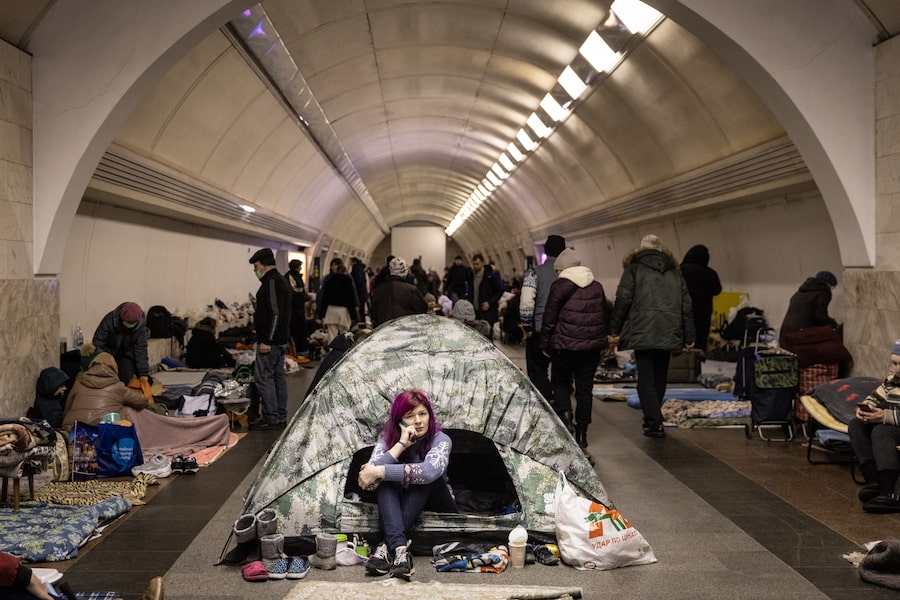








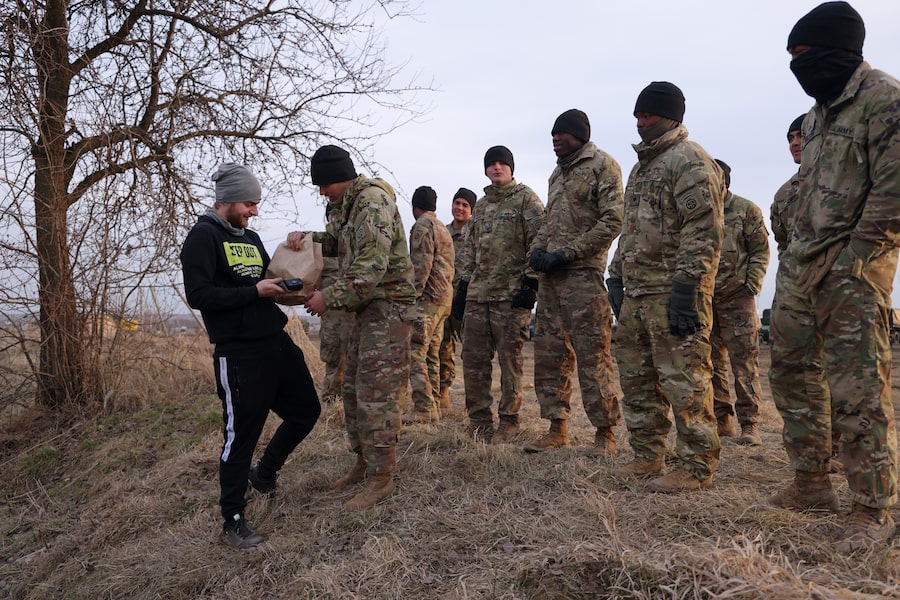




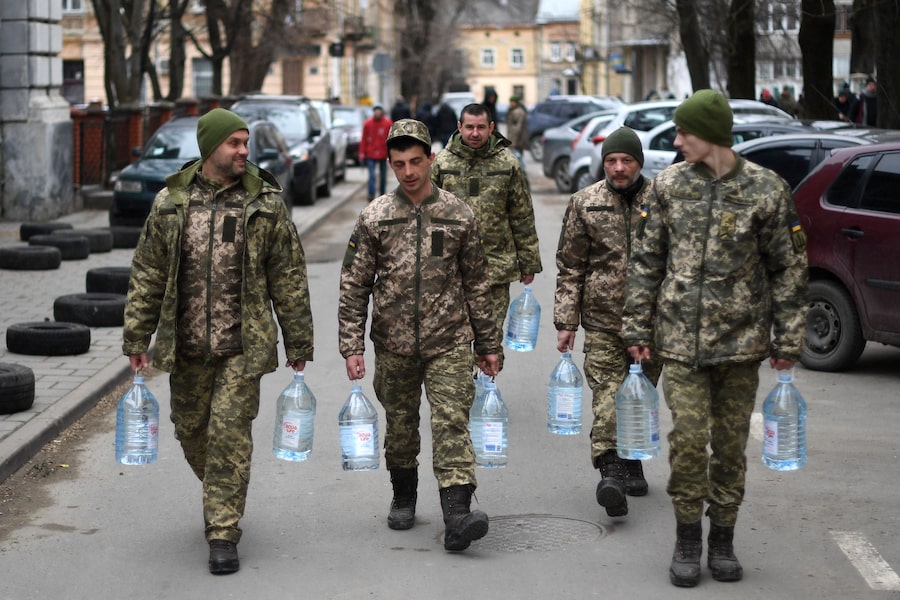
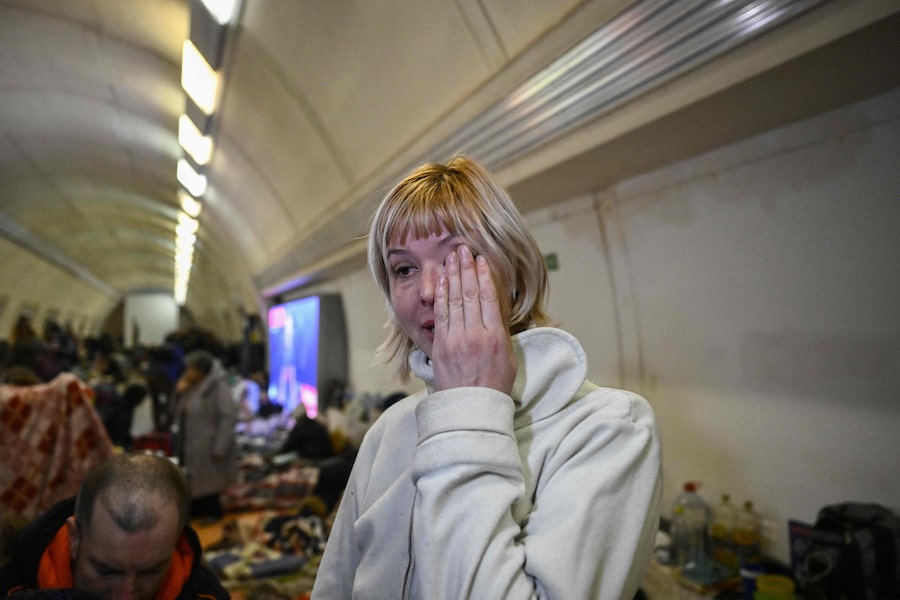
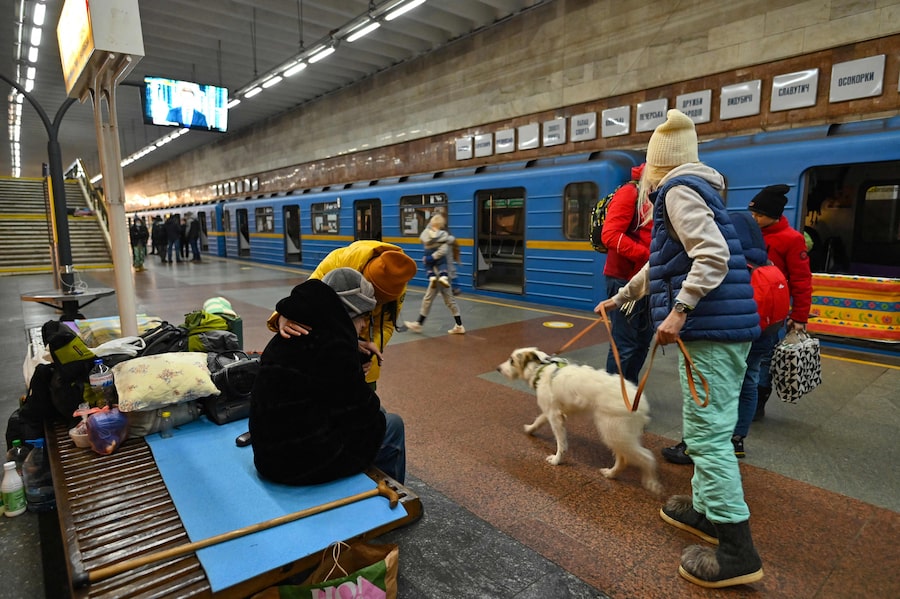
 Nathan VanderKlippe
Nathan VanderKlippe Mark MacKinnon
Mark MacKinnon